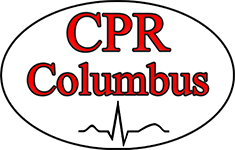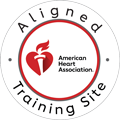Imagine this…a colleague collapses in the break room at work, their face turning pale as they lose consciousness. Within moments, you find yourself at the center of a crisis, with your life hanging in the balance. You administer CPR, guided by the precise techniques you learned through your American Heart Association (AHA) CPR certification, and soon, emergency responders arrive. Thanks to your quick, trained response, your colleague is revived and on their way to recovery. This scenario underscores the critical importance of CPR training and certification in saving lives during emergencies.

The Critical Importance of CPR Certification
Cardiopulmonary resuscitation (CPR) is a life-saving technique used during cardiac arrest to restore blood flow and oxygen to vital organs. Its importance cannot be overstated, as timely CPR can significantly increase survival rates and improve outcomes for patients experiencing sudden cardiac arrest. The American Heart Association (AHA) plays a pivotal role in shaping CPR training and setting the standards that guide healthcare professionals and the public in performing effective CPR.
The necessity of CPR certification for medical professionals is paramount. Immediate action in cardiac arrest situations can be the difference between life and death. According to the AHA, survival rates can double or even triple when high-quality CPR is administered immediately. This statistic highlights the critical window of time in which CPR must be performed to enhance the chances of survival. Having CPR certification equips medical professionals with the skills to act swiftly and confidently during such emergencies, making a tangible impact on patient outcomes.
Call Us Now
Get the Best CPR Class in Columbus Today!
Beyond the immediate impact, CPR certification also enhances medical professionals’ confidence and competence. Being certified means that you are well-versed in the latest CPR techniques and guidelines, which can significantly boost your confidence in handling emergencies. This preparedness not only improves your effectiveness during a crisis but also alleviates the psychological stress associated with performing CPR. The reassurance of being trained and ready can make a profound difference in the heat of the moment.
Moreover, legal and professional requirements often necessitate CPR certification for various medical fields. Many healthcare institutions and credentialing bodies require medical professionals to hold current CPR certifications to meet their standards and regulations. This requirement ensures that all staff members are prepared to respond effectively to cardiac emergencies, maintaining a high standard of care and safety within the healthcare environment.
Overview of AHA Certification
The AHA’s CPR certification is renowned for its credibility and thoroughness. Founded in 1924, the AHA has been at the forefront of cardiovascular care and research, establishing itself as a leading authority in CPR training and guidelines. The AHA’s CPR courses, including Basic Life Support (BLS), Advanced Cardiovascular Life Support (ACLS), and Pediatric Advanced Life Support (PALS), are meticulously structured to cover a wide range of life-saving techniques tailored to different scenarios.
A typical AHA CPR certification course involves hands-on training, where participants learn the essential techniques of CPR, AED usage, and choking relief. The courses are designed to be interactive and practical, providing learners with the skills needed to respond effectively in real-life emergencies. Upon completion, participants receive certification, which requires renewal every two years to ensure that their skills remain current with the latest guidelines and practices.
Benefits of AHA CPR Certification for Medical Professionals
For medical professionals, AHA CPR certification offers numerous benefits. One of the most significant advantages is improved patient outcomes. Evidence consistently shows that trained professionals who perform CPR correctly contribute to higher survival rates and better overall patient recovery. Case studies highlight the success of CPR interventions carried out by certified individuals, reinforcing the value of being well-trained in these critical techniques.
Additionally, CPR certification can enhance professional growth and open up opportunities for advancement. In many healthcare settings, having CPR certification is a prerequisite for employment or advancement. It can also serve as a valuable addition to a medical professional’s resume, demonstrating a commitment to patient safety and readiness to handle emergencies. Specialized CPR skills can lead to roles in advanced care settings or emergency response teams, furthering career development.
Another benefit is enhanced team collaboration. CPR training fosters a shared understanding of emergency protocols among team members, improving coordination and effectiveness during critical situations. This training ensures that all members of a healthcare team are on the same page, leading to smoother and more efficient emergency responses.
Addressing Common Concerns and Misconceptions
Despite these benefits, some concerns and misconceptions about CPR certification may arise. One common concern is the time and cost investment required for certification. However, many find that the benefits far outweigh these considerations. The time spent on training is relatively minimal compared to the life-saving potential it provides, and the cost is a worthwhile investment in both professional development and patient safety.
Skill retention is another area of concern, as techniques learned during certification can be forgotten over time. To address this, regular practice and participation in refresher courses are recommended. Additionally, numerous resources are available for continuous learning, including online tutorials, mobile apps, and community training programs.
Conclusion
In the fast-paced and unpredictable world of healthcare, having AHA CPR certification is not just a credential—it’s a crucial component of delivering effective patient care. For medical professionals, being trained in CPR ensures you have the skills and confidence to respond to emergencies swiftly and effectively, potentially saving lives in critical situations. The American Heart Association’s CPR courses provide comprehensive, evidence-based training that meets the highest standards of care.
Don’t wait until an emergency arises to realize the importance of CPR training. Enroll today for CPR certification in Columbus and enhance your readiness to handle life-threatening situations. CPR Columbus, an American Heart Association training site, offers initial certifications and renewals in BLS for Healthcare Providers, ACLS, PALS, and CPR and First Aid courses. Experience stress-free, hands-on classes designed to fit your busy schedule. Equip yourself with the best CPR training in Columbus and ensure you’re always prepared to make a difference. Sign up now at CPR Columbus and stay at the forefront of emergency care!


